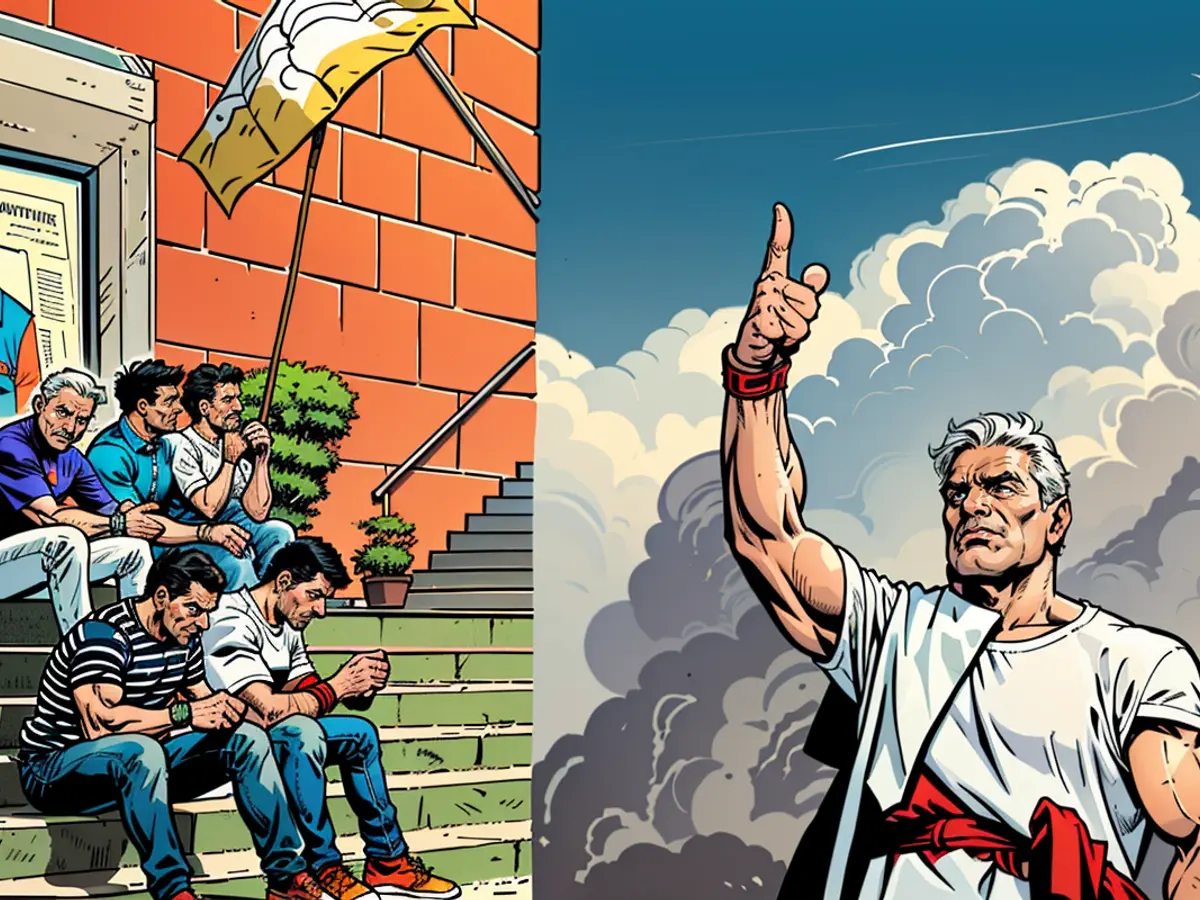In India, Modi experiences defeats as his party loses total control.
India's Prime Minister Narendra Modi has secured victory in the world's largest election, but his BJP party has suffered some setbacks. The opposition has gained ground significantly - despite Modi's main rival being behind bars. The stock market has experienced substantial losses due to the election results.
Incumbent Indian Prime Minister Narendra Modi has emerged victorious in the parliamentary elections in the world's most populous nation. However, Modi and his Hindu nationalist BJP party haven't obtained the anticipated growth: The Election Commission reports that the BJP holds approximately 36.7% of the votes after counting 99% and has once again become the strongest political force. Over the last five years, the ruling coalition has suffered notable defeats.
Modi, who has been popular among several sections of the population for a decade, is now seeking a third term as the leader of the most populous country on the planet. His adversaries are weakened by internal power struggles and politically motivated prosecutions. Modi's political opponents and international human rights organizations have long criticized the decline in democracy in India.
Fell Short of the Target
The Election Commission announced that the BJP will have 239 seats in New Delhi's parliament, marking the first time in a decade that it has not achieved an absolute majority. The party is now dependent on its coalition partners for governance. The coalition led by Modi's BJP is projected to have at least 291 seats, which is less than the BJP had five years ago, when it secured 303 seats independently.
Modi expressed satisfaction with the outcome despite the losses: India has "once again reposed faith in the ruling coalition," he wrote on platform X. "We will continue the good work of the past decade to fulfill the aspirations of the people."
The opposition Congress Party nearly doubled its parliamentary seats from 52 to 99. "The voters have punished the BJP," stated party leader Rahul Gandhi. He had been confident that "the people of this nation would respond appropriately." Modi himself was re-elected in his constituency with a lead of 152,300 votes, although this was a decrease from half a million votes five years ago.
Modi's foremost political adversary, Arvind Kejriwal, the Chief Minister of the federal state of Delhi, is currently in prison. He was arrested in March, just before the parliamentary elections' commencement, on corruption charges. Kejriwal, who denies any wrongdoing, was temporarily freed from jail to take part in the election. Before his return, he said, "If power becomes dictatorship, then a prison sentence is a sign of responsibility."
The US think tank Freedom House claims the BJP is increasingly using government institutions to target political opponents. The opposition and human rights activists accuse Modi of advocating for the Hindu majority in the country. So Modi referred to the 210 million Muslims in the country as "intruders" and "those with more children" in the election campaign. Complaints against the Prime Minister by the opposition have been disregarded.
Modi counters that the primary opposition party (INC) aspires to reallocate wealth in the country toward Muslim households. India is a secular state; per the election law, campaigns intended to incite animosity toward specific demographic groups are prohibited.
During Modi's decade-long tenure, India has become a crucial foreign policy partner to Western nations, seen as a significant counterweight to China in Asia and a significant trading partner, particularly following its growth as a digital economy. Modi has invested billions in securing the border with China, and in 2020, there was a brief military skirmish between the two Asian powers in the border region. Despite these tensions, both countries are essential trade partners. India also maintains strong relations with Russia. For the future, Modi aims to secure a permanent seat for India in the UN Security Council.
The parliamentary election in India was the world's most extensive democratic voting process, lasting six weeks and encompassing more than 968 million people. The vote counting was completed using special counting computers.
The stock market index Sensex experienced a significant drop of seven percent on the weekend following the election results. The share price of the largest listed division of the Adani Group, Adani Enterprises, plummeted by 25 percent; its owner, Gautam Adani, is a close ally of Modi and received government approval for a massive coal mine.
The voter turnout was 66.3%, compared to 67.4% in 2019. The slightly lower engagement rate was also attributed to the severe heat wave India is currently enduring. At least 33 election workers perished due to heatstroke on the election's final day.
Read also:
Despite the Elections results, Narendra Modi's BJP party may face challenges in governing India, as they have fallen short of an absolute majority, gaining 239 seats in the parliament. This is the first time in a decade that the BJP has not achieved an outright victory, necessitating cooperation with coalition partners.
The discontent towards Narendra Modi and his BJP party reflected in the parliamentary elections, with the opposition Congress Party nearly doubling its seats from 52 to 99, demonstrating a shift in political dynamics within India's democracy.








